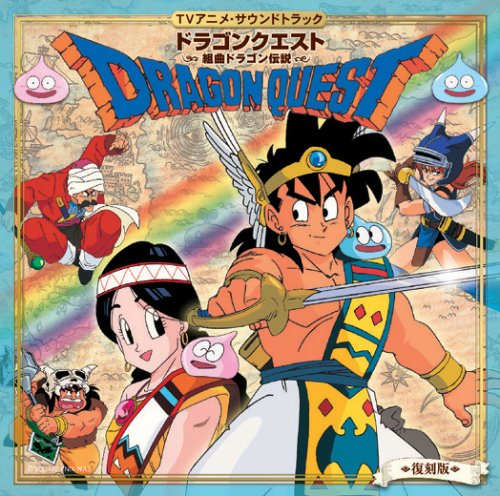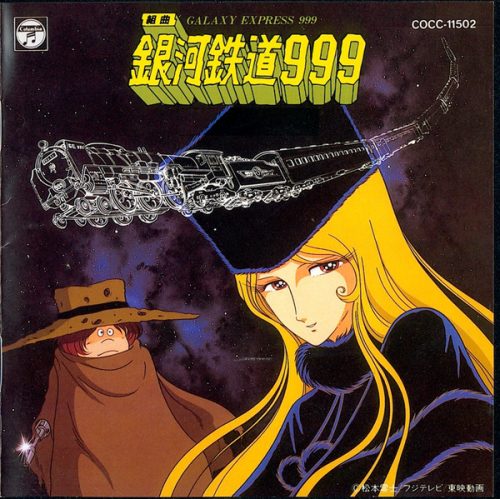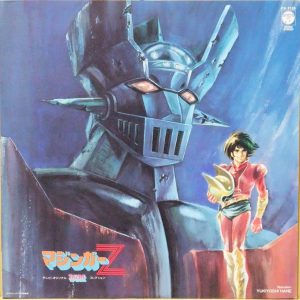
We know you’re already asking yourselves why we decided to spotlight Canada, since it’s far from the forefront of the fandom in terms of clout or events and the fact that it hasn’t even shown up in a major anime or manga series since 2016’s super creepy Super Lovers has probably not helped it stay in the minds of viewers. But trust us when we say that Canada’s history with anime is deeper than even Canadian otaku may know. So we invite you to learn all about how our favorite media found a home in a land of hockey and maple syrup, which mostly involves…
The Ocean Group
If you know about how anime came to America through shows licensed by U.S. companies with heavily edited localizations aimed at young children only to gain acceptance, leading to faithful translations and booming manga sales becoming the norm, then you basically know what happened in Canada as well. This is mostly because a lot of the media consumed in Canada (including all the manga localizations sold around the country) is at least partially American in origin. But, you may not be aware of how vital a role the Vancouver-based Ocean Group played in bringing the medium to both nations.
Initially formed in 1974 as a recording studio catering to popular rock acts from the area, the fledgling enterprise underwent a slow shift in focus towards voice work throughout the 80s until they suddenly became one of the biggest names in the dubbing industry thanks to their partnership with Saban, one of the few distributors televising anime at the time.
Ocean’s first anime projects under Saban were Entaku no Kishi Monogatari: Moero Arthur which adapted the legend of King Arthur; Oz no Mahoutsukai which retold L. Frank Baum’s classic Wizard of Oz novel and Dragon Quest: Abel Yuusha Densetsu which loosely adapted the third Dragon Quest game. These dubs mostly flew under the radar, especially Dragon Quest, which was completely pulled when Saban was quickly sued after scrubbing Akira Toriyama’s name from the credits. But in spite of their failure, these initial shows would prove crucial to Ocean’s dominance later on, as they began what would become an extremely lucrative partnership and were introduced to some of the greatest new voice talents at the time, including the likes of Ian James Cortlett, Scott McNeil, and Kathleen Barr.
These actors—and Ocean itself—would finally score a hit with their unprecedentedly faithful dub of the much-celebrated Ranma ½. While not quite a mainstream crossover hit, it was an undisputed success in Canada, where it catalyzed a passion for anime in viewers all around the country thanks to its solid dubbing and nearly uncut nature. At this time, the only other anime available were obscure VHS dubs and fansubs imported from the States and even they tended to be liberally edited, so although it was still fairly underground, Ranma’s nearly untouched localization airing on TV was revolutionary in its own right.
An Ocean of Anime
To avoid wasting the momentum built up from their Ranma ½ dub, Ocean began producing dub after dub and hit after hit for otaku in all English-speaking territories. Galaxy Express 999, Maison Ikkoku, Key the Metal Idol, Green Legend Ran, Please Save My Earth, the Fatal Fury trilogy and other cult classics older readers are sure to recognize from memories of video stores and Sci-Fi Channel reruns were all made during this time. The Ocean Group were still virtually the only people bringing anime into Canada at the time, but they had gained so much clout internationally thanks to their commitment to preserving their material’s intent and their repertoire of impressive talent which now included even more greats like Paul Dobson, Maggie Blue O'Hara, and Matt Hill among others. All they needed was one breakout smash hit to finally give anime a real foothold in Canadian culture.
Rock the Dragon
True mainstream acceptance of anime in Canada—like in America—didn’t begin without Dragon Ball, but getting there wasn’t easy. In the States, FUNimation Productions had spent 1995 trying to find success with the original 1986 Dragon Ball anime but quickly failed, opting to redouble their efforts on its sequel series, Dragon Ball Z. FUNimation was only a year old at this time and thus lacked the funds to produce a full dub, but, after acquiring the license to Dragon Ball Z, Saban agreed to partner with the tenderfoot company and distributed the first English broadcasts of Dragon Ball Z, dubbed by none other than the Ocean Group.
The rest, as they say, is history. Dragon Ball Z was an instant success, presenting a grandiose saga of action and character drama, making the martial arts fantasies of children everywhere feel all the more tangible and becoming a household name in the process. This dub wasn’t Ocean’s best, especially since it sent their reputation for accurate adaption into another dimension, but their voicework was some of the best on television and the groundwork it set was followed by not only FUNimation’s later in-house dub but every English voice actor to work in a shonen battle show.
Saban eventually abandoned the show midway through its airing in favor of pursuing their own productions, leaving FUNimation unable to afford to outsource to Ocean and redubbing Dragon Ball Z from episode 1 onwards in-house. Ocean landed on their feet though, still writing translated scripts for FUNimation while putting their team to work on dubbing the series’ remaining two sagas. Meanwhile, dubs of Dragon Ball and Dragon Ball GT were produced at the Ocean Group’s budget sister studio Blue Water. While FUNimation enjoyed the Dragon Ball franchise's success in the US, Australia, and New Zealand, Ocean's version aired in Canada and Europe, giving millions of people their first taste of anime and starting a sizeable otaku movement for the first time.
Anime in Canadian Culture
Thanks mostly to Ocean’s Dragon Ball Z dub, anime and manga are now respected as a fairly mainstream form of entertainment for Canadians of all ages and available at all major movie and book stores respectively. It’s still mostly seen as kids’ stuff, but adult otaku rarely, if ever, experience any stigma for their hobby.
Otakudom has become so absorbed into Canadian culture that many cartoons made there have been made with a heavy aesthetic influence from anime, such as Totally Spies and Martin Mystery. The medium has become such a force that Canada has directly co-produced several shows in collaboration with Japanese studios. Some you may recognize are Cybersix, Pecolia, Spider Riders, Pandalian and Bakugan. Many of these have been major hits in japan and Canada alike, most notably the Beyblade franchise, whose anime series was co-produced in Canada starting in 2010 and dubbed by Nelvana and—you guessed it—the Ocean Group.
Final Thoughts

We hope you enjoyed our look at Canada's major contributions to the early English-language otaku scene and the ways its culture was affected as a result. Choosing to spotlight Canada was somewhat daunting because of how its proximity to the United States has led both countries' otaku scenes to be similar but highlighting the Ocean Group's often forgotten contribution to today's anime culture was worth it. Be sure to let us know what you thought of our observations and let us know what country you'd like us to cover next as we continue to look at otaku around the world.
Recommended Post
Otaku Around the World: 40 Years of Manga and Anime in Italy
Recommended Post



